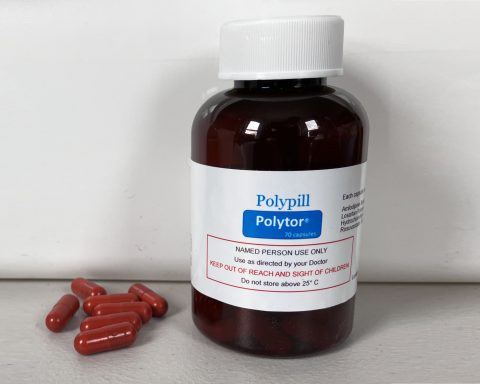
British primary care is arguably in a mess (arguably least mess in Scotland). Negotiators are asking for crumbs when the NHS needs a loaf. We are told to be realistic in our ask because we are in a time of looming recession and high inflation with a large national debt. ‘Realistic’ means not asking for much investment in the NHS.
On the contrary, we need to be realistic by asking for significant recurrent investment in health and social care. Protecting the population is a basic task for government, and that includes protecting the health and wellbeing of the population.
Protecting the population is a basic task for government, and that includes protecting the health and wellbeing of the population.
That was a fundamental driver for the formation of the NHS, in an immediate postwar period when the economy was also in difficulty. We, healthcare professionals, need to seize every opportunity to tell those who manage our country’s resources that without substantial long-term increases in funding the NHS will fail to deliver high quality comprehensive care. Without this we will slide into a two tier system, where patients get substantially inferior care unless paying. Inequalities will worsen.
Doctors in Unite have proposed an alternative to the status quo in the recent paper “Vision for revitalising primary care and public health, A charter for General Practice”1 released in June 2022. The paper argues that, for primary care transformation to work, health must be recognised as a prime goal of government, with spending on health and social care increasing considerably and with allocations to public health, primary care and social care increasing by a greater proportion than spending on hospital services. Resource allocation must be such as to counter the inverse care law, with equitable provision in line with need. There needs to be action to address the environmental and commercial determinants of ill health, and the health inequalities directly linked to poverty. Improved public health reduces demand all across the health care system.
The document is clear that improving working conditions is the key to better recruitment and retention. GPs need individualised job plans, finite working days, career progression and the option of salaried or independent contractor status. The primary care team needs to be expanded, but GPs do not necessarily need to employ other team members. The Doctors in Unite paper argues that there should be neighbourhood health communities, adequately resourced for management and needs assessment.
The Doctors in Unite paper argues that there should be neighbourhood health communities, adequately resourced for management and needs assessment.
Public health and community development would be integral components, and hospital and specialist services should be designed around needs in primary care. The number of patients per GP needs to decrease, with the consequent ability to provide continuity of care adding value.
The scale of funding required is estimated to be an additional £20 billion a year recurrently, not counting ‘one-off’ capital expenditure such as required to purchase premises and improvements to IT systems. This figure is not ‘pie-in-the-sky’. We know, for example that £37 billion was the two-year budget for the failed Test and Trace Covid systems for example.2 £22 million was spent on management consultants in 2018/19.3 Developing reliance on shareholder based private companies diverts public funding to private profits. What is being considered for the NHS would be investment. Preventative actions may take a generation to show benefits, but a country can take a long view of return on investment. An increase in healthy life expectancy reduces years spent in heavy use of health services.
Let us all call on our negotiators to be radical in their ask, to procure the loaf not the crumbs, to have the vision of what is needed, and to deliver not just shuffling of resources, but real growth, for the good of all.
References
- https://doctorsinunite.com/2022/05/16/primary-care-and-public-health-vision-for-revitalising-primary-care/ accessed 19/7/22
- https://fullfact.org/health/test-and-trace-37-billion/ accessed 19/7/22
- D. Oliver. Government Spending on Management Consultants trebles in 3 years BMJ 2019;366:15404
Featured image by Tommaso Urli on Unsplash









Some excellent points made. Thank you Pamela !